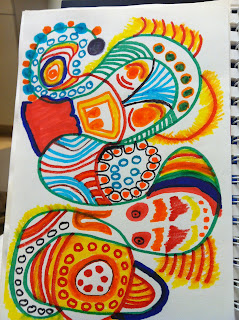Rabbi Kushner has written a number of books I can recommend. The one I was recently reminded of was "How Good Do We Have To Be? Although ostensibly addressing guilt and forgiveness it is has served as a useful personal theme for me as a doctor as I ask myself if I am maintaining my "goodness".
I have a personal "quality model" I test and calibrate myself against:
A] Is my knowledge base as a physician up to date?
B] Is my interaction with the patient sitting in front of me focussed?
C] Am I communicating and adequately transferring information?
Maintaining knowledge currency is easy in our web-enabled world. Push technology sends daily e-mail summaries of medical journals I have subscribed to for content summaries. Data aggregators send daily disease orientated e mail summaries and links. Selecting articles of incremental, practical and clinical value, hospital medical librarians then send a .pdf full article back for review and filing in a data base for future reference. These are often useful patient education material.
Entering a room to meet with a patient is entering a vacuum with suspended time. I must be fresh, not interrupted and concentrating on the only patient I have - the one sitting in front of me! Not easy in the health care industry 2010 style: interruptions from cell phones, pagers, colleagues. The economics of re-imbursement that drives doctors to see more patients in less time, use "physician extenders" such as nurses, nurse practitioners and physician assistants. Less face time, less talk, less explanation, more potential for errors or missed cues that may help diagnosis or management. It takes discipline and office practice rules and efficiency.
The third rule follows the above creation of uninterrupted time. I use sketches to map out the information I believe the patient requires to participate in management decision making and understand the basis for my recommendations. I encourage family to be present and our discussions recorded. I publish my home e-mail address on my "business" card to encourage communication, questioning and dialogue.
Concentration, communication and clarity.




